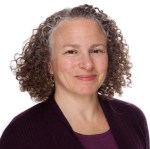The Program on Reproductive Health and the Environment invites you to the following events at the American Public Health Association
Annual Meeting & Expo 2019.
November 2-6, 2019 at the Pennsylvania Convention Center
Monday, November 4th
Translating Environmental Health Sciences for Diverse Audiences to Protect Children’s Health
Session 3354.0
Time: 3:00 – 4:30pm
Location: 104B
Protecting children’s environmental health requires partnerships at various levels to build the environmental health literacy of different audiences to promote action at the individual, community, and national level. The Centers for Children’s Environmental Health, funded by the National Institute of Environmental Health Sciences (NIEHS) and the Environmental Protection Agency (EPA), serve as a national network to engage with a variety of audiences to translate the latest environmental health science into culturally appropriate messages and materials that raise environmental health literacy. In this session, four representatives from Centers will focus on how they identified environmental health knowledge and addressed their audience’s needs.
 Moderator
Moderator
Liam O’Fallon, MA
 A Recipe for Prevention: Embedding Environmental Health in Healthcare
A Recipe for Prevention: Embedding Environmental Health in Healthcare
Annemarie Charlesworth, MA
3:00-3:20pm
 Knowledge Child Care Providers Need about Environmental Influences on Children’s Health
Knowledge Child Care Providers Need about Environmental Influences on Children’s Health
Brenda Koester, MS
3:20-3:40pm
 It Takes A Village: Investing in Community Outreach and Research Translation to Address Environmental Health Disparities
It Takes A Village: Investing in Community Outreach and Research Translation to Address Environmental Health Disparities
Haguerenesh Woldeyohannes, MPH, RN
3:40-4:00pm
 Engaging key stakeholders to reduce early life exposure to arsenic from food and contaminated water
Engaging key stakeholders to reduce early life exposure to arsenic from food and contaminated water
Carolyn Murray, MD, MPH
4:00-4:30pm
Tuesday, November 5th
Taking action to defend science and protect public health at the Environmental Protection Agency
Session 4142.0
Time: 10:30am-12:00pm
Location: 107A
Almost everything the EPA does to protect public health and the environment depends on science. However, the role of science in decision making has been under attack in recent years. EPA proposed a rule that would restrict the use of relevant science in decision-making and require the agency to consider certain statistical models even when doing so is scientifically inappropriate. The agency has taken additional steps to limit the use of critical data in chemical risk evaluations conducted under the Toxic Substances Control Act. To avoid oversight, EPA political appointees have shuttered expert review panels for air pollution standards, and replaced independent scientists with industry representatives on the agency’s science advisory committees. If successful, such attacks on science will weaken public health protections. This session brings together scientists, lawyers, and policy experts to discuss the range of attacks on science at EPA.
 Moderator
Moderator
Patricia Koman, MPP, PhD

Censoring Science: How the Trump Administration Is Trying to Control the Data and Models Used in EPA Decision-Making
Tyler Smith, MPH
10:30-10:50am
 Key issues undermining evidence-based decisions on chemicals at EPA
Key issues undermining evidence-based decisions on chemicals at EPA
Veena Singla, PhD
10:50-11:10am
 Taking the Science out of Scientific Review of Air Quality Standards
Taking the Science out of Scientific Review of Air Quality Standards
Chris Frey, PhD
11:10-11:30am

Legal Advocacy to Defend the Use of Science in the Federal Government
Eve Gartner, JD
11:30am-12:00pm
Talking Toxics
Film Session FF09 Climate’s Effect on Health
Presenter: Susan Lamontagne, Public Interest Media Group
Time: 12:15-1:00pm
Location: 114 Michael Nutter Theater
Read the press release here.
This short film examines how toxic chemicals are undermining health, particularly reproductive health, and the challenges in developing health protective policies that keep up with the growing science. It also documents the historic position taken by the International Federation of Gynecologists and Obstetricians (FIGO) to urge policymakers around the globe to find ways to reduce toxic chemical exposures. The film features leading environmental health scientists including UCSF Professor Tracey J. Woodruff and Bruce Lanphear, MD of Simon Fraser University, both of whom have led landmark studies documenting the effects of toxic chemicals on pregnant women and children, and former ACOG President and now FIGO President Jeanne Conry, MD, as well as ob-gyns from around the globe.
A comprehensive review of consumer and occupational methylene chloride fatalities in the US from 1980-2018 and policy implications
Session 4334.0 Chemicals and Public Health
Presenter: Veena Singla, PhD
Time: 3:20-3:40pm
Location: 109A
 Methylene chloride is an organic solvent widely found in common products including paint strippers, metal cleaners, and adhesives. In 2012, the Centers for Disease Control and Prevention reported that methylene chloride containing paint strippers were responsible for 13 fatalities among professional bathtub refinishers. However, there is no comprehensive identification and analysis of consumer or occupational methylene chloride fatalities in the US.
Methylene chloride is an organic solvent widely found in common products including paint strippers, metal cleaners, and adhesives. In 2012, the Centers for Disease Control and Prevention reported that methylene chloride containing paint strippers were responsible for 13 fatalities among professional bathtub refinishers. However, there is no comprehensive identification and analysis of consumer or occupational methylene chloride fatalities in the US.
This session will describe why methylene chloride is a major concern for consumer and occupational health and safety, will discuss the circumstances and demographic patterns of methylene chloride fatalities in the US in the last 40 years, and make recommendations for US policy approaches.


You must be logged in to post a comment.